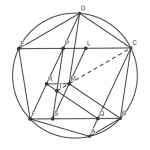Halyna Bilavych
Vasyl Stefanyk Precarpathian National University – Ivano-Frankivsk (Ukraine)
Nataliia Bakhmat
Kamianets-Podіlskyi Ivan Ohiienko National University – Kamianets-Podіlskyi (Ukraine)
Tetyana Pantyuk, Mykola Pantyuk
Drogobych State Pedagogical University of Ivan Franko – Drogobych (Ukraine)
Borys Savchuk
Vasyl Stefanyk Precarpathian National University – Ivano-Frankivsk (Ukraine)
https://doi.org/10.53656/str2022-2-3-pre
Abstract. The article deals with the analysis of the state of the primary school teachers’ preparation for communicative-rhetorical activity at school, diagnostics of formation of communicative-rhetorical skills of future teachers. The theorists and practitioners give an important place to rhetoric as a science and an academic subject in the training teachers of the new generation. It is the communicative and rhetorical skills as an important component of the general and professional culture of the teacher that will help the primary school educator to organize the pedagogical process effectively, build convincing communication with children, their parents, colleagues, officials etc. However, in the theory and practice of pedagogical education and science the phenomenon of communicative-rhetorical competence as the most important component of the teacher’s professional profile is not realized, its structure is not distinguished, psychological and pedagogical bases and, technology of its formation for students are not clearly defined, the world’s experience of rhetorical personality formation is studied. This was confirmed by the results of a survey conducted among undergraduate students, graduates of pedagogical faculties of Vasyl Stefanyk Precarpathian National University, Kamyanets-Podilsky Ivan Ogienko National University, Drohobych State Pedagogical University of Ivan Franko, students of postgraduate pedagogical education Ivano-Frankivsk, Khmelnytsky, Lviv regions. Thus, most respondents consider their level of communication and rhetorical skills to be insufficient. More than 70% are afraid of the audience; 84% do not know how to speak “without paperˮ. All respondents, including teachers, regardless of work experience, called the main reason for the ineffectiveness of pedagogical communication the fact that during professional training they did not have well-formed communication and rhetorical skills. The obtained results convincingly prove the need for their purposeful formation in future primary school teachers. Optimal construction and implementation of the educational process for the formation of students’ communicative and rhetorical skills is possible with a technological approach, the essence of which is to modernize the didactic system based on the study of its components and experimental verification of its effectiveness, as well as the introduction of in general, the rhetoric of the initial process in the pedagogical institution.
Keywords: communicative and rhetorical competence; communicative and rhetorical skills; future primary school teachers; higher educational establishment; rhetoric; communicative and rhetorical activity



